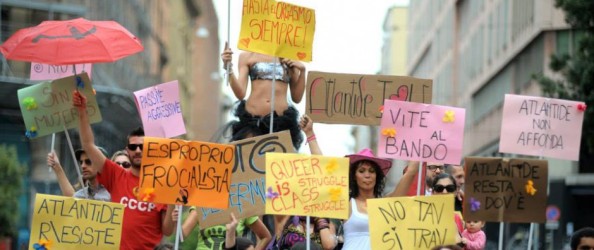How Victor Orbán launched a constitutional coup and created a one-party state.
On April 6, Hungarians went to the polls and re-elected their government. In most countries, such an outcome would be a reaffirmation of the political status quo. But Hungary is no longer like most countries. The re-election of its government marks the collapse of politics in Hungary.
Viktor Orbán and his Fidesz party first came to power in 2010 with a clear majority of the vote. In April, the party won a second term with just 45 percent of the vote, yet a set of Fidesz-friendly changes to the election laws enacted by Orbán during his first term as prime minister transformed this plurality into a two-thirds parliamentary mandate, giving him the power to continue to amend the Hungarian Constitution at will. Still, the April results should not be taken as a vindication: Orbán has maintained his grip on the Parliament with 21 percent fewer domestic votes than Fidesz garnered in 2010, reflecting a decline in its overall margin of victory and a drop in turnout.
Despite his weakened position, Orbán could not be effectively challenged by other parties, in no small part because the deck was stacked against them. A coalition of left parties led by the Socialists, Hungary’s largest left-leaning party, outpolled their 2010 results but won only 26 percent of the vote. Given the disproportionate allocation of mandates in the new election system, the opposition alliance received only 19 percent of the parliamentary seats. On the far right, Jobbik garnered 21 percent of the vote, a near 4 percent gain from 2010. Though it performed poorly in Budapest, it was the second-largest vote-getter in much of the countryside, but the new rules skewed its presence in the new Parliament. As the third-largest party, its share of seats sank from 17 to 12 percent. LMP, a tiny, vaguely green party, squeaked over the 5 percent threshold and entered the Parliament with almost 3 percent of the seats.
While it may be tempting, it would be a mistake to draw lessons from the election about the future of the left in Hungary or the rise of the far right. In the long run-up to the vote, Orbán enhanced his control over all public institutions, whipped up nationalist sentiment, nationalized parts of the economy, and—in a move designed simply to win votes—lowered utility rates. He acted not as the conservative he claims to be but as a populist radical. The Socialists had presided over an IMF-mandated austerity program begun in 2008, when they were last in power, and could hardly be said to represent the left. Their smaller counterparts in the coalition were liberals of various indeterminate stripes who had little discernible ideology. Jobbik captured the protest vote because it campaigned in sheep’s clothing, running on a kinder, gentler conservative platform that tactfully concealed its anti-Semitism and anti-Roma sentiments.
more: TheNation



 MMA countdown – Free Artists welcomes the resigned MMA-members!
MMA countdown – Free Artists welcomes the resigned MMA-members! TRANSZPARENCIÁT!
TRANSZPARENCIÁT!